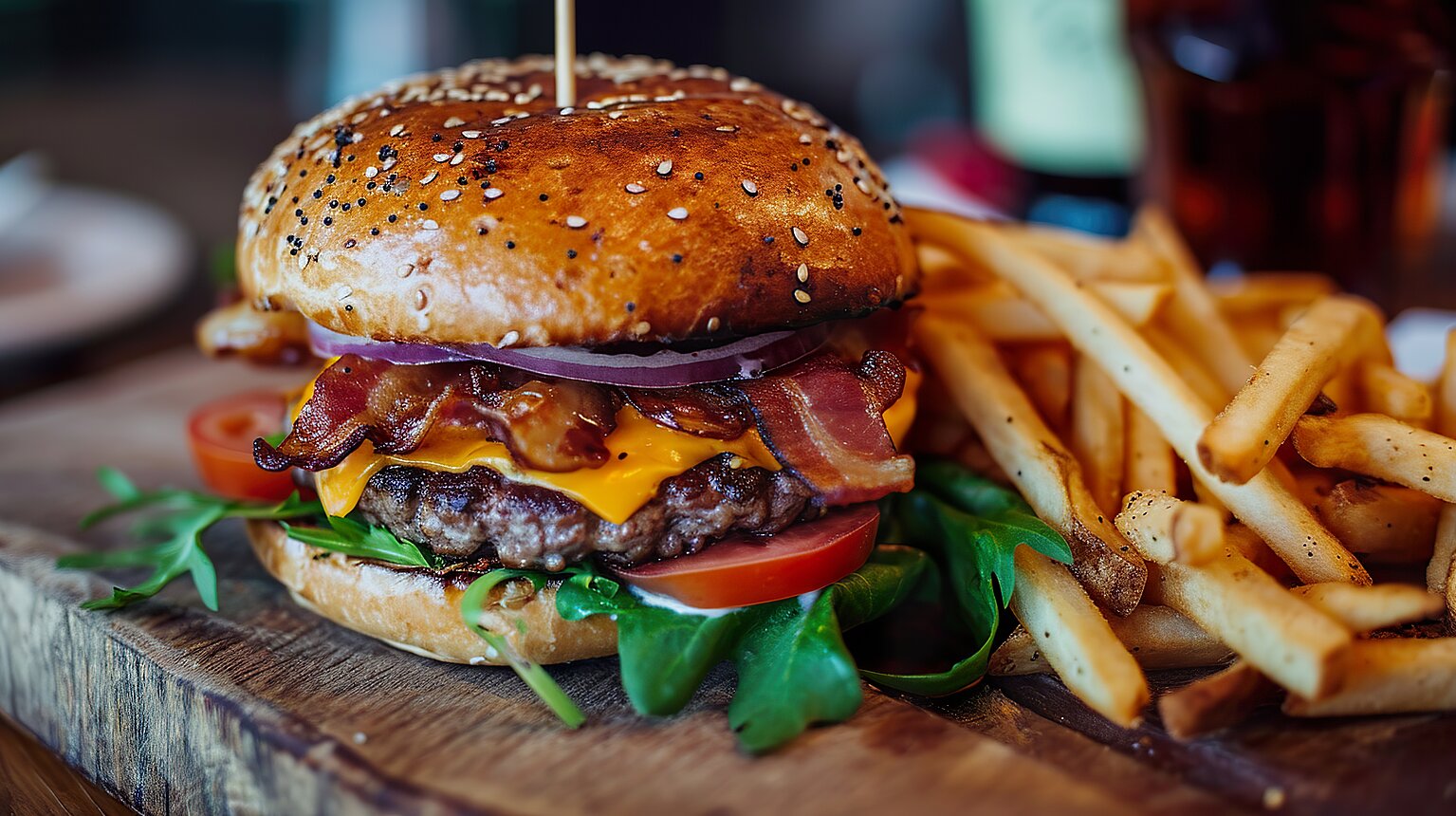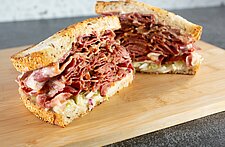Burger purists might argue that a beef patty and a bun are all you need to create this classic American meal. For others, the sky is the limit when it comes to what you can add to this foundation.
Certain areas of the U.S. have become synonymous with distinctive burger styles. What makes these burger styles special, and why are they gaining popularity beyond their states of origin?
Oklahoma
The Sooner State may be better known for chicken-fried steak, but its regional burger style has been highlighted on recipe sites like Serious Eats and NYT Cooking. Featuring one or more smashed patties topped with fried or grilled onions and melted American cheese, the Oklahoma onion burger may also be served with pickles and yellow mustard.
As the story goes, Hamburger Inn owner Ross Davis started smashing cheap onions into his burger patties during the Great Depression to add substance and value for customers without unduly increasing prices. Soon, nearby establishments began to follow suit, and the popular onion burger took off.
Mississippi
The slugburger (so named because it once cost a slug, or a nickel) operates on the same basic principle as the Oklahoma onion burger: stretching the budget with inexpensive add-ins. This one uses eggs, flour, or bread crumbs mixed in with ground beef (much like budget-friendly meatloaf) to stretch more costly meat.
This trend is said to have started in Mississippi during World War I as a way to cope with rationing, although it remained popular through the Depression years and beyond. Corinth, MS, holds an annual Slugburger Festival in recognition of this state fave.
California
What makes a California-style burger unique is the addition of avocado or guacamole, along with other fresh veggies and sometimes bacon. It looks more like a club sandwich than a typical burger.
While it’s unclear who first added avocado to a burger or when, it’s no surprise that this take came from the Golden State. Not only does California lead the U.S. in food production, but it also produces by far the most avocados of all U.S. states at around 140,000 tons per year.
Related: Exploring the Top 2024 Sandwich Trends and Insights
New Mexico
There’s some contention over where New Mexico’s signature green chile cheeseburger originated, but the most popular legend names the original Owl Bar and Cafe in San Antonio, NM, which served the burger to Manhattan Project scientists stationed in the area during World War II.
This burger features a patty, cheese, and a generous heap of the signature hatch green chiles grown extensively in the region.
For more trends and exciting insights, sign up for our weekly newsletter HERE
The Spread of Regional Burger Styles
There may be multiple reasons for the spread of regional burger styles. Recent years have revived the American hunger for variety, including within the domestic culinary experience.
Another contributing factor could be the economy. With prices inflated on everything from meat and eggs to flour and sugar, people are looking for ways to cut costs. Smash-style burgers featuring smaller patties can offer more bang for the buck, especially when cheaper ingredients like onions and American cheese are thrown in.
Mike Puma’s Gotham Burger Social Club in New York is a great example of both principles at play. Puma’s restaurant started as a sought-after pop-up thanks to its Gotham Smash, a signature fried onion burger featuring a custom beef blend. It became a brick-and-mortar establishment on the Lower East Side earlier this year.
Making a Modern Meal
When it comes to classic American meals like hamburgers, each consumer is sure to have a fallback favorite. The basic format lends itself well to experimentation, and restaurateurs need not look far to find menu inspiration by discovering regional styles that can offer both the novelty and economy today’s diners are looking for.
To learn more about Symrise and other food trends insights, contact the team today.





